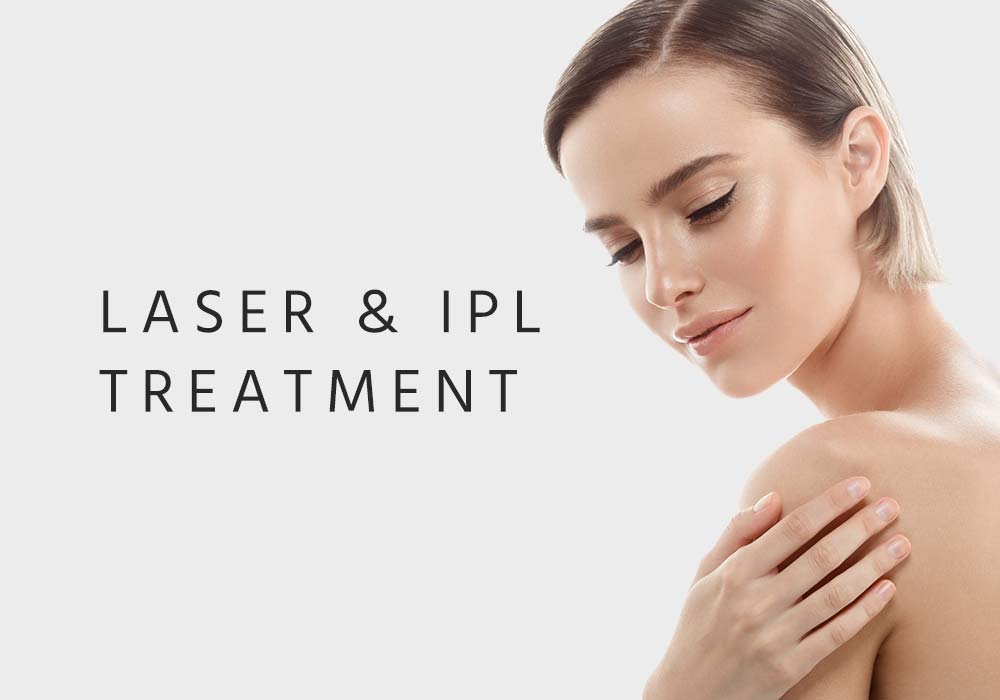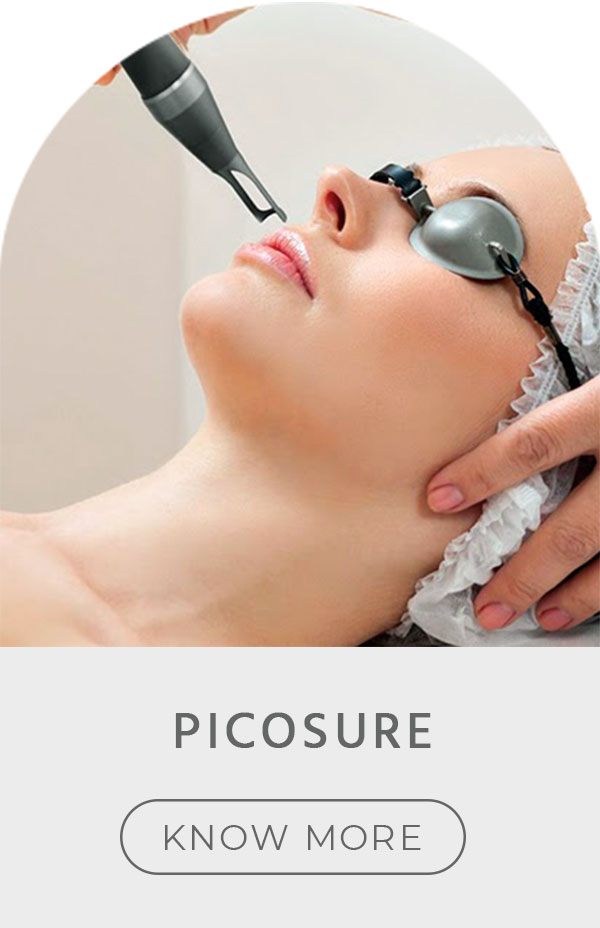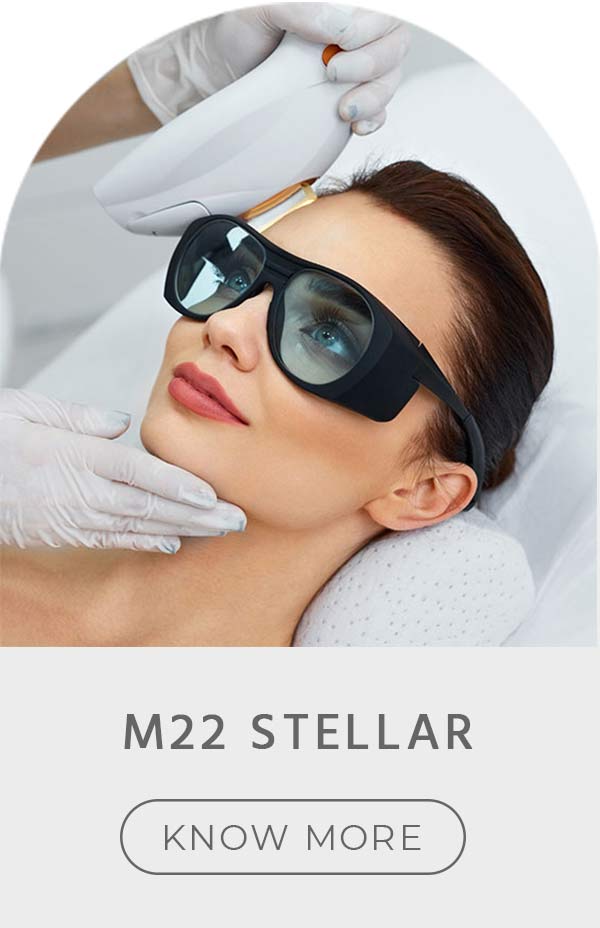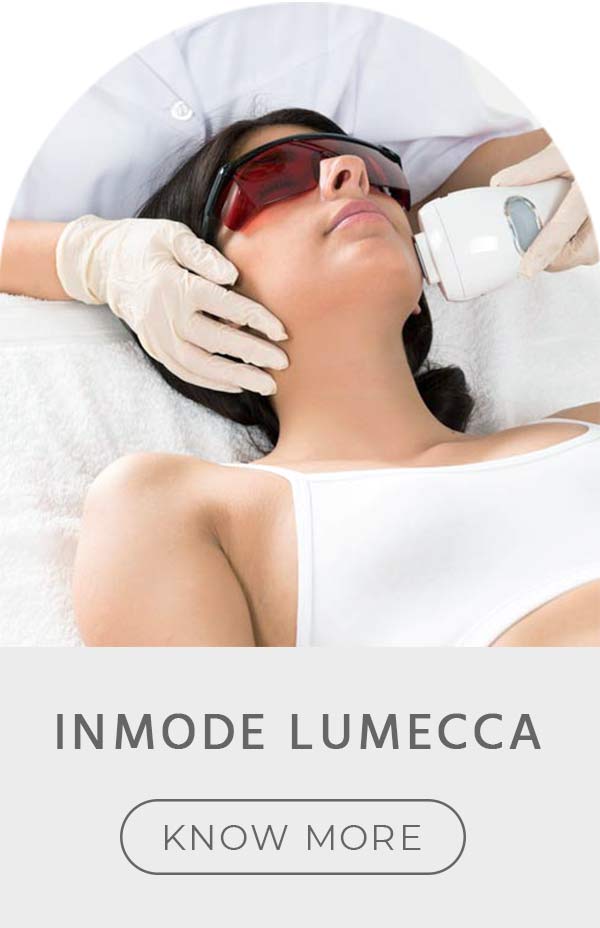

Laser IPL Treatment
FAQs for Laser IPL Treatment
1. What is Laser IPL Treatment?
Laser IPL (Intense Pulsed Light) treatment is a non-invasive cosmetic procedure that uses broad-spectrum light to target various skin concerns. Unlike traditional laser treatments, IPL emits multiple wavelengths of light, making it versatile for treating a range of conditions such as pigmentation, vascular lesions, hair removal, and overall skin rejuvenation.
2. How does IPL work?
IPL works by delivering controlled pulses of broad-spectrum light to the skin. The light is absorbed by specific pigments in the skin, such as melanin in pigmented lesions or hair follicles, and hemoglobin in vascular lesions. This absorption converts light energy into heat, which destroys the targeted cells without damaging the surrounding tissue.
3. What conditions can IPL treat?
- Pigmentation: Sunspots, age spots, and freckles.
- Vascular Lesions: Spider veins, broken capillaries, and rosacea.
- Hair Removal: Unwanted hair on the face and body.
- Skin Texture: Fine lines, wrinkles, and enlarged pores.
- Acne: Active acne and acne scars.
4. Is IPL safe?
Yes, IPL is generally considered safe when performed by a trained and experienced practitioner. It is non-invasive and has a good safety profile. However, it is essential to have a consultation to ensure that IPL is suitable for your skin type and condition.
5. What can I expect during the treatment?
During the treatment, the practitioner will apply a cooling gel to the target area to enhance comfort and protect the skin. The IPL device is then moved across the skin, delivering pulses of light. You may feel a slight snapping sensation, similar to a rubber band being snapped against the skin. The procedure typically lasts 20 to 60 minutes, depending on the area being treated.
6. Is there any downtime after the procedure?
IPL treatment has minimal downtime. You may experience mild redness, swelling, or a sunburn-like sensation immediately after the procedure, but these effects usually subside within a few hours to a day. Most patients can return to their normal activities immediately.
7. How many treatments are needed?
The number of treatments required varies depending on the condition being treated and individual skin response. Generally, a series of 3 to 6 treatments spaced 3 to 4 weeks apart is recommended for optimal results.
8. When will I see results?
Results from IPL treatment can vary based on the condition being treated. Some improvements may be visible after the first session, but significant results typically appear after a series of treatments. Skin texture and tone continue to improve over several weeks to months as collagen production is stimulated.
9. Are there any side effects?
Side effects are generally mild and temporary, including redness, swelling, tenderness, and darkening of pigmented spots (which eventually flake off). Rarely, more severe side effects such as blistering, scarring, or changes in skin pigmentation can occur.
10. Can IPL be combined with other treatments?
Yes, IPL can be combined with other cosmetic treatments such as chemical peels, microdermabrasion, and laser resurfacing to enhance overall results. It's best to consult with your practitioner to develop a personalized treatment plan.
11. Who is a good candidate for IPL?
Good candidates for IPL are individuals with fair to medium skin tones who want to address specific skin concerns such as pigmentation, vascular lesions, and hair removal. A consultation with a qualified practitioner is necessary to determine suitability based on skin type and condition.
12. How do I prepare for an IPL treatment?
Preparation typically involves:
- Avoiding sun exposure and tanning for a few weeks before the procedure.
- Stopping the use of certain skincare products, such as retinoids and photosensitizing medications, a few days before the treatment.
- Following any specific instructions provided by your practitioner.
13. How do I care for my skin after the treatment?
Post-treatment care involves:
- Keeping the skin clean and moisturized.
- Avoiding direct sun exposure and using a broad-spectrum sunscreen.
- Avoiding hot baths, saunas, and strenuous exercise for a few days.
- Following any specific aftercare instructions provided by your practitioner.
For personalized advice and to determine if Laser IPL treatment is right for you, it's best to consult with a qualified dermatologist or aesthetic professional.







